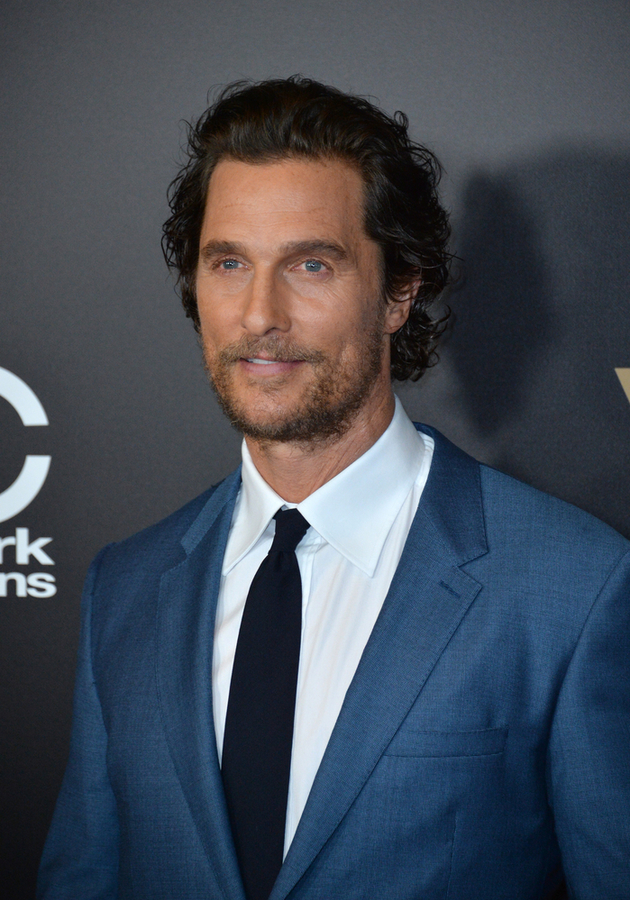To achieve real changes in your life and your personal development you need to work on your own character: Form new habits and change the fundamental beliefs that make up your worldview, after all, real personal growth cannot be achieved through shortcuts. That is the change that Stephen R. Covey tries to bring to you in the 7 Habits of Highly Effective People. For Stephen, if you really want to change your destiny, you need to change your habits and your character, working "from the inside out." From the moment you drastically change yourself, you can begin to change the world around you. To change your life, you have to face yourself. Let's see how to put this into practice?
Align Your Paradigms With Universal Principles
Paradigms are the building blocks that build our character. They are our fundamental principles and values , and so they define the way we see the world, like a pair of glasses. Our perception is not an objective reality, but a subjective interpretation captured by the lenses we use. The habits that define our actions result directly from these paradigms. They are the core of our character and the key to change if we are to become more effective. When we want to change ourselves, we have to change our fundamental principles first. Only in this way is it possible to change our subjective reality and, with it, our behavior. The first step is to become aware of our own paradigms. If you want to overcome established habits such as procrastination, egocentrism or anxiety, you first have to recognize the fundamental principle that forms this habit. If you want to achieve real effectiveness, you need to align your paradigms with universal principles, such as justice, honesty, and integrity. As most people agree on these principles, we can see them as natural laws that last forever, that is, parameters to compare with our own values. It is possible to measure all behaviors before these universal principles. The more we can align our values with them, the more we will be able to integrate ourselves in harmony with the world around us.
Be Proactive
Want to become more effective? You need to take control of your life in the face of all the opportunities and situations that arise. Make decisions and actions always based on your values and not just based on the conditions in the circumstances in which you are at the moment. The freedom in choosing your answer is based on:
-
Self-knowledge: So that you can understand your feelings and thoughts;
-
Imagination: For you to be able to go beyond your present reality;
-
Consciousness: Your ability to distinguish good from evil
-
Free Will: So that you can change your emotions and thoughts perceived by your self-knowledge.
A proactive person is guided by his own values, and unlike a reactive person, she makes a point of making her own decisions, never letting the world or others tell her what to do to change her situation. If you are proactive, no one can negatively affect your feelings unless you allow it. This truth is not easy to accept, especially if you often blame others for your problems. Once you accept that you have caused your own present situation and that you are the master of your destiny, you become able to change your future. One of the best ways to improve this is by changing the way you communicate. Use language that matches this new mental reality. If you use passive phrases, such as "So-and-so makes me crazy," it's time to stop. Understand that you are being reactive and allowing others to control your emotions. Try an active alternative, such as "I'm allowing so-and-so to drive me crazy. What could I do so that this does not happen anymore?" Besides, you should also abandon expressions such as "I have to do something" and change them into their active forms: "I want to do something". Focus on the things you can control, and you will become a more effective person.
Start With An End In Mind
Many people work for meaningless goals, a diffuse focus. They care about being efficient, rather than effective. To change this, you need to develop the habit of personal leadership, which is based on the need to start each day with a clear understanding of your goals and desired results. To succeed, you must plan first and execute later. First, you must define what you want to achieve and then trace all activities to achieve that goal. Personal leadership should come first, in the form of the question "what do I want to achieve?" Then comes your ability to manage, in the form of the question "what is the best way to achieve what I want?" Your goals, you need to visualize the outcome of each action before executing it.Therefore, a good tip is to define a personal mission statement, memorize it and write it down. In this mission, you define your beliefs and objectives: List the values and principles that you believe in, and the greater goals you want to achieve in your life. The mission statement is your personal constitution, an established standard by which everything can be measured and evaluated. Giving you a sense of direction and security to make the best decisions based on your principles.When making a decision based on your principles, you become more efficient because:
-
You make the decision proactively, based on your free will, not because someone is pushing you in a direction;
-
You know that your choice is appropriate because it is based on principles with predictable long-term results;
-
Your own decision helps to reinforce your core values;
-
You can communicate honestly with everyone involved, explaining your fundamental principles;
-
You feel comfortable with your decision, whatever it is;
First Things First (What Comes Before, Comes Before...)
You have already learned that you can create your own paradigm and discovered the fundamental principles by which you should live and work. Now you are ready to put the most important things first, every moment. In other words, become able to control your time masterfully. To be truly productive, you need always to organize your time around your priorities. First things first mean being constantly prioritizing and always working on what is most important at a given time. To get real prioritization is necessary to learn to say yes to everything that is part of your ultimate goal and not to all the distractions that may appear between you and your goal. Every yes you say today can be a step toward it or away from it, therefore attention is essential.
Think Win-Win - Everyone Has To Win
Most people tend to think according to the Win-Loss model. This model states that every time someone wins something, someone has to lose, as in a zero-sum game. But life and most situations are not a competition, and you need to understand that there are situations where everyone can win. The win-win way of thinking is based on the idea that one person's victory does not necessarily happen at the expense of another's defeat. If one person wins and the other loses, neither gets the trust and loyalty of the other in the long run. I mean, you can win by having the other party lose now, but that will affect the next deal in the future. If you cannot achieve a win-win situation, it is preferable not to close the deal. So at least you maintain the relationship to a possible win-win agreement in the future. Win-win agreements have the following dimensions:
-
Character: is the basis of the win/win paradigm. Only when you know your values well will you know what it means to win.
-
Relationships: build on the basis of character. Develop your credibility over time by investing in relationships focused on success on both sides.
-
Agreements: Agreements arise from relationships. An understanding must be clear and binding: desired results, rules or parameters within which results will be obtained, resources available to achieve results, measures to evaluate the objectives achieved and the consequences that pursue the goals.
-
Regulatory system: for agreements to work, there must be a system to evaluate and regulate it.
-
Process: A simple process must be used to reach a win/win agreement: The first step is to try to see the situation from the perspective of the other by identifying its key aspects and concerns. Next, we must list the results that we would consider a solution acceptable to both and finally we should seek the agreement or new options to obtain these results.
Seek First To Understand Then To Be Understood
Each relationship is like a kind of emotional bank account that records exactly how much each person has invested in it. The greater the balance, the greater the trust between the parties. And to reach this balance, one must understand the other.
That is the habit of effective communication and also the most powerful habit that we can put into action immediately. Most people spend their lives learning to communicate in written or spoken form but have little training in listening and truly understanding the other person. It is rare to find people who listen with the intention of understanding.
People often listen with the intent to respond. Hearing with empathy is a very powerful tool that gives you the exact information to work with. Instead of filtering out what the person is talking about the filter with which you see the world (or listening), you have to understand how the other person sees you.
After the physical need to survive, the most important need of a person is to be understood and appreciated. By listening empathically, you will be fulfilling that need and can then influence the other party and work together on a win/win solution. It takes time and effort to master this skill at first, but the rewards are great. If you learn to listen in a truly active and empathetic way, you will notice that many people are quite willing to open up and consider your opinions and advice.
Take Advantage Of The Synergy
Synergy means that the whole is more than the sum of its parts. The habit of synergizing then involves creative cooperation and teamwork: people with a win-win mentality who listen with empathy can take advantage of their differences to generate options that did not exist before. Gathering several different perspectives, in the spirit of mutual respect, results in synergy. Participants feel free to look for the best possible alternative and often get different and better proposals than the original ones. Synergy makes you assimilate new points of view and achieve positive results by working together. But synergy is not necessarily making everyone agree. It is to extract the best of each, never confusing uniformity with unity. The goal is not that everyone agrees and comes up with a uniform solution, but rather come up with a unique solution that combines the best of the parts.
Always Sharpen Your Saw
Just as a carpenter has to sharpen his saw every time, you need to sharpen your habits, giving maintenance to your tool. The idea is simple, you should be able to bring in new practices, but also reorganize to keep current habits working correctly. Effectiveness is achieved when the balance between production (P) and production capacity (PC) can be maintained. However, people are often very busy producing (sawing the wood) to pay attention to the maintenance of their means of production (sharpening the saw). That causes them to see themselves producing little because they have a dull saw without. So is it with your habits. If your habit is not sharp, your production falls. That is because often maintenance does not bring large immediate gains, but it is essential if you want to continue sawing and even more if you want to preserve your saw. Sharpening the saw implies the invention of a balanced, systemic program for self-renewal in four key areas. You should spend at least an hour each day working on them:
-
Physical dimension: includes physical exercise, nutrition and stress management. By eating correctly and exercising 30 minutes a day, you will be able to improve your strength and stamina. If you do not, your body will weaken.
-
Spiritual dimension: You must renew your commitment to your values by reviewing your personal mission, or by prayer, meditation, or immersion in music, literature, or nature. If you do not, your spirit will be insensitive.
-
Mental Dimension: Your mind is "sharpened" by activities such as reading, writing, and planning. Start with one end in mind and work on priorities first.
-
Social/emotional dimension: Be empathic and think win-win As the four dimensions are interrelated, what you do to "sharpen the saw" in one will positively impact the others. If you work the four dimensions in balance, at least an hour a day, every day, you will make habits a fundamental part of your life.
Final Notes:
Start working on your new habits now. First, be proactive. Then continue with the clarity of your goals, focus on universal principles, and focus on your priorities. Look for win-win situations, listen empathically, and create opportunities for synergy in your life. But remember: this creative process never ends. You should continue to sharpen your habits for the rest of your life.
12min tip: How about rethinking your routine and creating new habits with the learning of the microbook “The Power of Habit”?




























